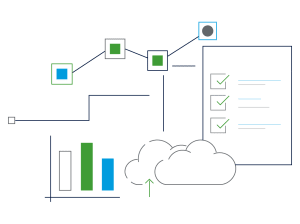This article answers the following questions:
- What are e-statements?
- By when must a financial statement be prepared?
- Who must sign the e-statement and how?
Since 1 October 2018, financial statements in Poland must be prepared exclusively in electronic form and signed with a qualified electronic signature or a signature confirmed via the ePUAP trusted profile. These rules were introduced as part of the amendment to the Accounting Act and, in practice, mean a complete departure from paper-based documentation. So what does the current circulation of e-statements in Poland look like, and what channels and deadlines apply to entities operating in our country?
Key rules currently governing e-statements
Accountants preparing electronic financial statements must bear in mind several key aspects related to the preparation and use of this document.
- No paper form of the document – a printout of the electronic statement is treated only as a copy.
- Predefined format and structure – statements of entities registered in the National Court Register (KRS) must be prepared in a structured XML format, in accordance with the schemas published by the Ministry of Finance and made available in the Public Information Bulletin of the Ministry.
- Inclusion of PIT taxpayers maintaining accounting books – under Polish regulations, such entities are also required to prepare e-statements in a logical structure.
- No obligation to submit a copy to the tax office – entities registered in the KRS submit statements exclusively to the Financial Document Repository in the eKRS system, which simultaneously fulfils the obligation towards the tax administration.
- Prescribed rules for preparing statements under International Financial Reporting Standards (IFRS) – electronic statements under IFRS must be prepared in Poland in the format specified in Commission Regulation (EU) 2019/815 (or another searchable format); since 2020, uniform ESEF (European Single Electronic Format) schemas have been in force.
- Procedures for submitting declarations as defined by law – according to Article 52 of the Accounting Act, if a company is managed by a multi-person body, the financial statement may be signed by only one of its members. The condition is that the remaining members must submit written declarations confirming compliance with the regulations (or submit a refusal to do so). A refusal to declare is treated the same as a refusal to sign the financial statement and must therefore be justified in writing. Accountants are obliged to attach both declarations of compliance and refusals to the financial statement.
Learn more about our services
Current tools and practices for submitting electronic financial statements
In 2018, when e-statements became mandatory, many technical solutions were still lacking, which caused numerous problems during submission. Today, the situation is different:
- The Ministry of Finance provides a free application called “e-Sprawozdania Finansowe” (Eng. e-Financial Statements) for creating structured XML files,
- Increasingly, accounting software and ERP systems have built-in functions for generating e-statements in the required format,
- The Financial Document Repository (RDF) in the eKRS system enables authorised individuals to easily submit documents online.
Deadlines for preparing and submitting electronic financial statements
The process of submitting an e-statement currently consists of three key stages:
- The financial statement must be prepared within 3 months from the balance sheet date,
- It must then be approved within 6 months from the balance sheet date,
- Finally, the file must be submitted to the KRS – within 15 days of its approval.
For entities whose financial year ended on 31 December, the final deadline for approval is 30 June, and for submission to the KRS – 15 July.
Properly prepared electronic financial statements are essential
Today, electronic financial statements are standard in Poland, and the initial difficulties with signatures and formats have fortunately been largely resolved. It remains crucial to meet deadlines and use the current schemas provided by the Ministry of Finance. Therefore, it is worth using the support offered by professional outsourcing firms and internal audit services to ensure that the organisation applies optimised procedures and fulfils all obligations properly.
Frequently Asked Questions About Submitting Electronic Financial Statements
This obligation applies to entities registered in the National Court Register (KRS), PIT taxpayers maintaining accounting books, and other entities required to keep full accounting records.
E-statements can be prepared using the free “e-Sprawozdania Finansowe” application provided by the Ministry of Finance or by using functions built into modern accounting software and ERP systems.
Failure to meet deadlines may result in financial penalties and liability for management. Therefore, it is important that the procedures for preparing and auditing financial statements are carried out in accordance with applicable regulations.
The e-statement must be signed with a qualified electronic signature or a signature confirmed via the ePUAP trusted profile by authorised individuals, such as members of the management board.
Yes, if errors are detected, a corrected version of the financial statement may be prepared and submitted in the eKRS system, along with an appropriate explanation.








